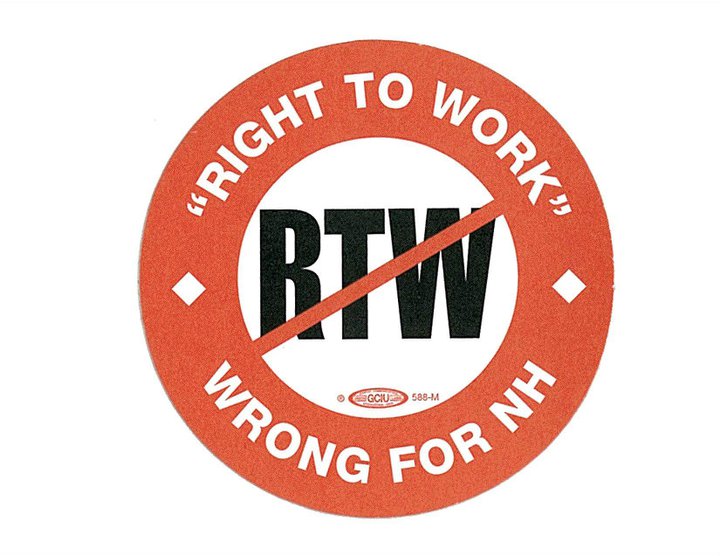
Brothers & Sisters,
As we begin the process of swearing in the winners of November’s election, I know that many of us feel discouraged and tired. Members across New England dedicated thousands of hours of their time to advocate for the election of leaders that would stand up for New Hampshire working families. In an election year where the entire country experienced a wave of GOP wins on the state and federal level, New Hampshire once again defied the norm and will be sending an all female Democratic delegation to Washington D.C.
Unfortunately, despite your tireless effort put into our Labor 2016 election campaign, we are faced with a New Hampshire Republican Party control of our legislature and the Governor’s Office. Although many of us are tired from a hard fought and seemingly endless campaign, we must stay active. We must stay engaged. And most of all, we must stay united.
Governor-elect Sununu has already publicly stated (more than once) that Right to Work legislation is at the top of his agenda. Make no mistake, unless we come together and fight, New Hampshire will be a Right to Work state. Despite the misleading name, so-called “Right to Work” laws do not guarantee anyone a job and do not protect workers’ rights. Right to Work laws prohibit trade unions from collecting fees to cover the cost of contract administration from employees who benefit from the protections of a collective bargaining agreement, but do not join the union. There are different versions of Right to Work legislation, but all Right to Work laws are designed to limit the power of labor unions, and the workers they represent, to negotiate for better pay and working conditions. While supporters typically claim that Right to Work laws are necessary to attract new businesses and increase employment opportunities, rigorous economic studies have failed to validate such claims.
The labor community in the Granite State has an obligation to the rest of New Hampshire working families to fight Right to Work legislation using all of the resources and allies we can organize. And we cannot afford to wait until the new legislative session starts and the Governor-elect becomes Governor. We must start to lay the plans for our opposition today!
As Governor, Chris Sununu will not only have the help of a Republican controlled legislature, but also the help of dark money Super PACs such as those funded by the Koch Brothers and other conservative millionaires. Well-funded Right to Work proponents like the National Right to Work Committee, U.S. Chamber of Commerce, American Legislative Exchange Council (ALEC) and Americans for Prosperity will be spending millions of dollars to push an anti-labor agenda.
We all have connections to different allies and a wide variety of resources. The only way that New Hampshire will not become a Right to Work state is if we use our numbers and our voices to stand together, and stand up for New Hampshire working families.
Start talking to your colleagues, fellow members, family members, and friends about what we can do to protect New Hampshire workers and their families from the attacks that are sure to come this legislative session.
The New Hampshire AFL-CIO will stand with its fellow brothers and sisters in the rain, sleet, and snow to protect New Hampshire workers and their future. Let’s get to work!
For more information on Right to Work click here.
For more information on upcoming events regarding organizing our opposition to anti-union attacks, please continue to check our website or email araff@nhaflcio.org





